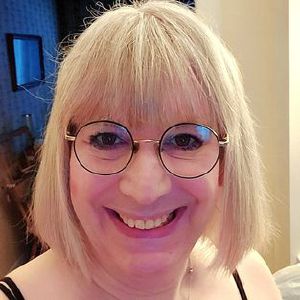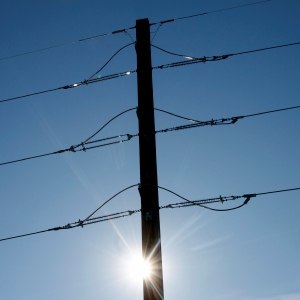Columnist John Paradis: Agent Orange catches up with Vietnam vets
| Published: 04-13-2017 7:57 PM |
Over eggs and bacon at the Bluebonnet Diner one recent morning in Northampton, Donald F. Moulton was smiling and talking about getting his campsite ready in southern Vermont. He was, as he has always done in his life, looking forward, not back.
But to understand Moulton’s current journey, you have to look to the past. Last fall, the 70-year-old Vietnam veteran woke up, looked in the mirror, and discovered a pimple on his face, just under his left eye near his nose. That’s not too big of a deal, right? Except when he touched it, out came blood.
Then raised blotches appeared all over his body. Big, dark round spots, he says. How big? He makes a circle with his thumb and forefinger. Some as big as half dollars.
Then he found out the reason: full-blown leukemia – and an acute and aggressive form of leukemia at that. One that takes multiple words and syllables to define: blastic plasmacytoid dendritic cell neoplasm. It’s so rare, it’s exact description and name has changed several times.
That was last October. He’s been back and forth to hospitals since, including Dana-Farber Cancer Institute in Boston where he participated in a trial drug therapy that with three sessions produced good results. Then came chemotherapy. Now this week, Moulton is driving back and forth from his home in Hatfield to the Lahey Hospital and Medical Center in Burlington, where he’s undergoing more chemo.
The latest round of radiation is “cleansing him,” he says, for a life-saving stem cell transplant procedure scheduled for later this year, although more chemo may be necessary.
And then, maybe then, he can think again about taking his boat out to fish in Vermont.
Moulton is like so many other Vietnam vets who were unaware they had been exposed to a deadly toxic dioxin. Now, decades later, the dioxin now known as Agent Orange is catching up with Moulton and his fellow vets, leading to debilitating and deadly health problems that range from heart disease to various forms of cancer like the kind Moulton has.
Article continues after...
Yesterday's Most Read Articles
Moulton enlisted from Easthampton in 1965 and just a few weeks after boot camp, he served with the Navy Seabees in Vietnam for two tours of duty, once from the fall of 1965 to the summer of 1966 and then a year later in 1967 up to the Tet Offensive in 1968.
As the American war expanded, so too did the work of the Seabees. The construction battalions built a staggering number of roads, runways and bridges and even built entire bases, hospitals and schools from the ground up. And since the projects always started with a lot of spraying to clear vegetation, he was always in locations heavily saturated with Agent Orange, one of the deadliest combination of chemicals ever synthesized by man.
Millions of gallons of the herbicide were used to remove jungle foliage in Vietnam and now it is killing Vietnam veterans at a rate just as surely and cruelly as it killed broad-leafed plants.
“The spraying was everywhere. Yeah, it was pretty prevalent,” he remembers. “But you know, I never dwelled on it … we weren’t even using the words Agent Orange then and we just took it for granted. I can tell you this, we weren’t pulling any weeds over there – that stuff pretty much took care of everything.”
When he left the Navy and returned home to Easthampton in 1969, he didn’t think twice about exposures to chemicals or really anything about the war. He just wanted to get back to civilian life – he was looking forward.
The first time he remembers the words Agent Orange being voiced was with family after he developed body rashes in his 20s and 30s – red spots so severe that his mother encouraged him to get them checked out. By then, articles started to appear showing a connection to several diseases and pesticides used in Vietnam. But Moulton’s rashes would disappear and then come and go and he didn’t make the connection, yet, between the herbicide and his health.
That was then. Now he has one of the rarest forms of leukemia and the correlation is now unequivocally clear, according to his doctors. He now has a claim pending with the Department of Veterans Affairs for a service-connected disability.
On April 22, Vietnam veterans and families from throughout the region will attend a town hall session about Agent Orange at Greenfield Community College. There will be experts to explain the history of Agent Orange, its related diseases and the VA claims process.
For Moulton and many veterans in the Valley, the war in Vietnam still goes on. They are now in the fourth quarter of their lives. He has two brothers, one who served in the Air Force in Thailand during the Vietnam War and was exposed to Agent Orange and also has cancer, and another brother, who wasn’t in the service, and is healthy.
Moulton isn’t angry, frustrated, or bitter. He’s a proud veteran. He now just wants what so many of his fellow vets want – a future and more time to spend with his family, enjoying his retirement.
He would love to be at the town hall session to share his experience with other vets, but this time next week, he’ll still be getting pumped with chemo at the Lahey Hospital. But he encourages his fellow vets and their families to attend. If you were in Vietnam or at any of the many locations stateside and around the world where Agent Orange was used by the U.S. military, there’s a good chance the toxic dioxin has caught up with you, too, he says.
“And I would tell them that if they think there’s something healthwise that’s out of the ordinary, to go get it checked right away – don’t wait,” he says. “They can do remarkable things these days with early diagnosis.”
This summer, let’s all pray that Donald Moulton will be in Vermont fishing. He’s looking forward, not back.
“I feel very fortunate, actually, to be given this chance,” he says. “I’m keeping everything in perspective. I have no regrets, no remorse.”
The Agent Orange Town Hall will be held from noon to 4 p.m. April 22, at the Greenfield Community College Main Building Dining Commons, 1 College Drive, Greenfield. More information is available by contacting the Upper Pioneer Valley Veterans’ Services District at (413) 772-1571.
John Paradis, a retired U.S. Air Force lieutenant colonel, lives in Florence and writes a column published the second Friday of the month. He is a veterans’ outreach coordinator for VA New England Health Care System.
]]>

 Guest columnist Mariel E. Addis: Under seige from all sides
Guest columnist Mariel E. Addis: Under seige from all sides Columnist Johanna Neumann: Reaping the rewards of rooftop solar
Columnist Johanna Neumann: Reaping the rewards of rooftop solar Julia Riseman: Join Friends of Northampton Trails
Julia Riseman: Join Friends of Northampton Trails Justine McCarthy and Ed Lamoureux: Political will needed to benefit from new power line technology
Justine McCarthy and Ed Lamoureux: Political will needed to benefit from new power line technology
